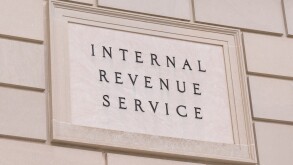On November 2 2018, Hong Kong's new research and development (R&D) regime was enacted and applies to eligible expenditure incurred on or after April 1 2018.
The new rules classify R&D expenditure into two broad categories (Type A and Type B expenditures), which are deductible subject to meeting certain conditions. Type A qualifies for the basic 100% tax deduction. Type B expenditure qualifies for an enhanced two-tiered tax deduction – 300% for the first HK$2 million ($255,000) and 200% for any remaining amount.
Amendments to the original Bill
There was only a minor amendment to the original legislation. This amendment relates to payments made by a taxpayer to another local institution under an R&D subcontract arrangement. It provides retrospective recognition for payments made to local institutions which have been designated by the Commission for Innovation and Technology (CI&T) as 'designated local research institutions'. That is, payments made to a local institution, which at the time of payment was not a designated local research institution, will be eligible for the concession as long as the local institution becomes a designated local research institution within six months from the date of payment.
Complexities in applying the new tax incentive
Some professional bodies and industry organisations have previously raised concerns that the qualifying criteria would make it difficult to assess whether expenditure would constitute Type B expenditure and thus qualify for the enhanced R&D tax deduction. The government's response was that the criteria are a matter of fact to be considered on a case-by-case basis. This is not entirely satisfactory, as experience in other parts of the world has shown that similar R&D definitions can be interpreted very differently by different tax authorities and much will depend on the attitude of the tax authorities in assessing claims.
The Inland Revenue Department (IRD) will release departmental interpretation practice notes (DIPN) shortly to elaborate on and clarify the provisions of the new law and the level of proof required from taxpayers to enable the IRD to assess any enhanced tax deduction claim. It is hoped that the DIPN will set a reasonable degree of flexibility in terms of documentation requirements and will fulfil the government's intention of encouraging R&D activity in Hong Kong.
One area where the Hong Kong legislation appears to be problematic is the limited range of payments qualifying for enhanced deductions – only employment costs, costs of consumables and payments to designated research institutions qualify. To address these concerns, a range of organisations, including those operated for commercial gain, may apply for this designation, and the DIPN will contain guidance on the procedures and criteria for application.
What taxpayers should do to get prepared and things to consider
Many organisations in Hong Kong are already conducting R&D activities, and such costs are usually embedded within their salaries and wages, expenditures or capital assets. Under the new R&D regime, payments to designated local research institutions, direct wages and consumables could qualify for the enhanced tax deduction.
Taxpayers should review and assess which R&D activities they are undertaking, and whether they meet the qualifying criteria for an enhanced tax deduction. Taxpayers conducting R&D should ensure that their internal systems and processes can correctly identify these qualifying activities and quantify the relevant costs. Taxpayers may also want to ensure that their existing business model is consistent with the relief, for example, that R&D employment costs are being borne by the entity benefiting from the IP rights that are being created.
Taxpayers should not overlook the documentary requirements for making an enhanced tax deduction claim. It is important that contemporaneous documentation of processes, risks and results are kept in accordance with the IRD's documentation requirements.












